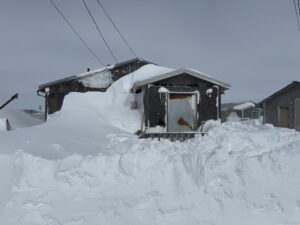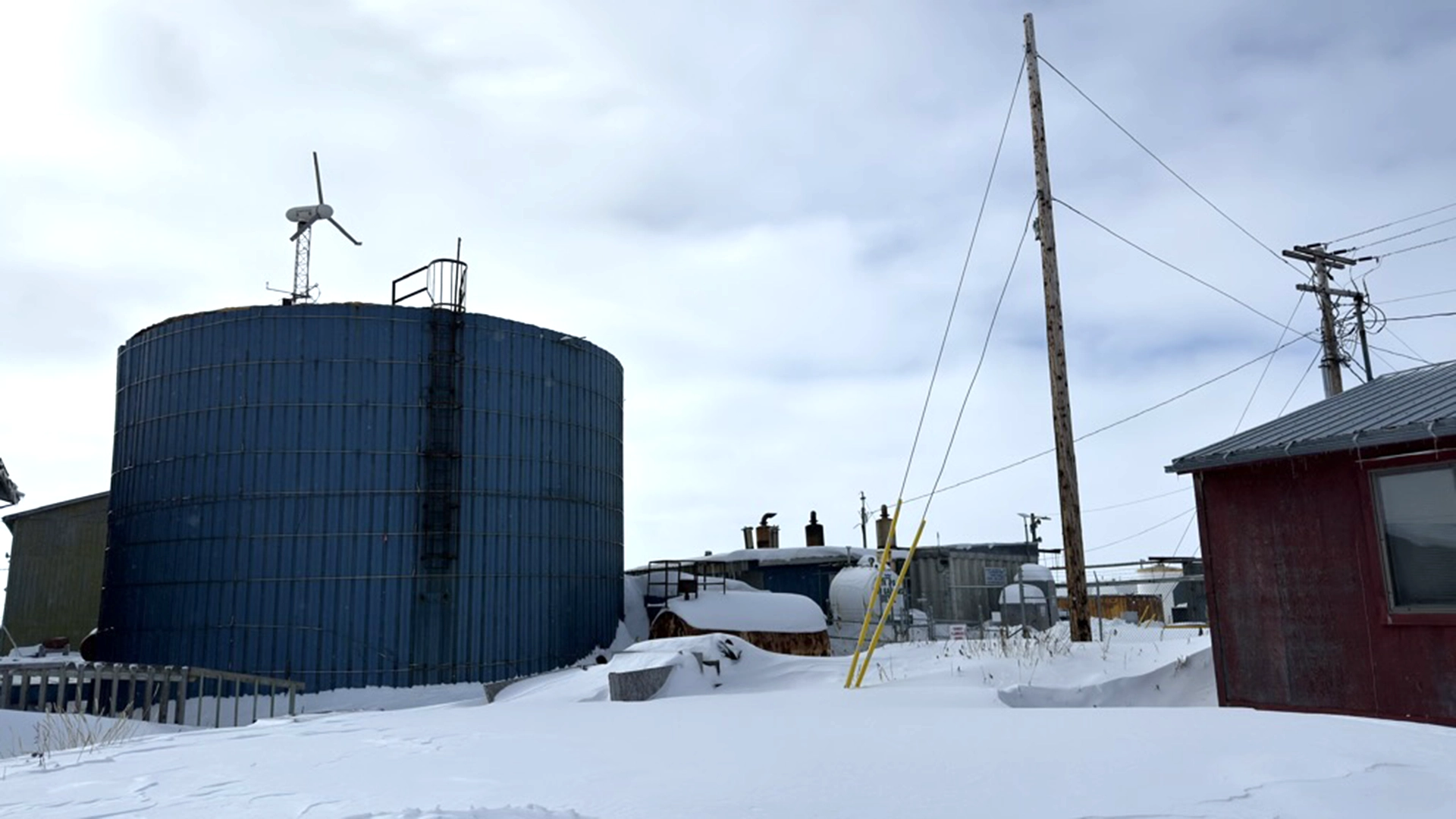The remote village of Shishmaref is facing a fuel shortage due to unforeseen legal and logistical complications, impacting essential services and the daily lives of its residents. The crisis began in August of 2022 following the sudden death of a manager of a local privately owned general store. This froze access to ordering critical supplies and fuel through the business. As officials looked ahead to the winter months, it became apparent that the available supply of gasoline and diesel simply wouldn’t be enough.
The community, located on an island inaccessible by barge in the winter due to sea ice, is highly dependent on fuel for heating, transportation, and powering essential facilities like schools and health clinics. Stella Havatone, President of the Native Village of Shishmaref Tribal Council, coordinated a multi-organizational effort to respond to the situation.
“We’ve been in constant discussion, trying to navigate this crisis,” Havatone said. “We’ve involved local businesses, the city council, and native corporations to explore all possible solutions.”
The village reached out to State of Alaska officials to declare an emergency but were declined, according to Havatone, because they “were not in a natural disaster situation.”
Due to the shortage, the village imposed a limit of 30 gallons per person per day to ensure equitable distribution among residents. As supplies dwindled emergency measures were taken including flying in fuel, which is significantly more expensive than deliveries by barge. Making matters worse, this past winter was unusually cold, driving up demand for the costly resource.

“This winter was particularly harsh, necessitating additional fuel, which quickly ran out,” Havatone said.
The village managed to secure emergency deliveries of diesel, but the cost remains a pressing concern, with estimates reaching as high as $24 per gallon. The village has ordered 24,000 gallons of diesel that is delivered 4,000 gallons at a time. The fuel is transported through a hose that runs about a quarter of a mile from a bladder inside a plane to fuel tanks in town. The logistical challenges were compounded by the need for special permits and adherence to hazardous material regulations for the flown-in fuel.
“It’s a complex situation requiring careful planning and compliance with safety standards.” Havatone noted.
In addition to the immediate fuel issues the village is also planning for long-term solutions, including additional fuel storage and exploring more sustainable energy options.
“We need to ensure that this doesn’t happen again. Our focus is on securing our energy needs and protecting our community’s health and safety.” Havatone said.
The crisis only added to concerns about the broader environmental and infrastructure issues facing Shishmaref like shoreline erosion. As the village navigates these challenges, the spirit of community and cooperation remains strong.
“Despite the difficulties, everyone – from elders to local businesses – have come together to ensure we manage through this crisis.” Havatone said.





